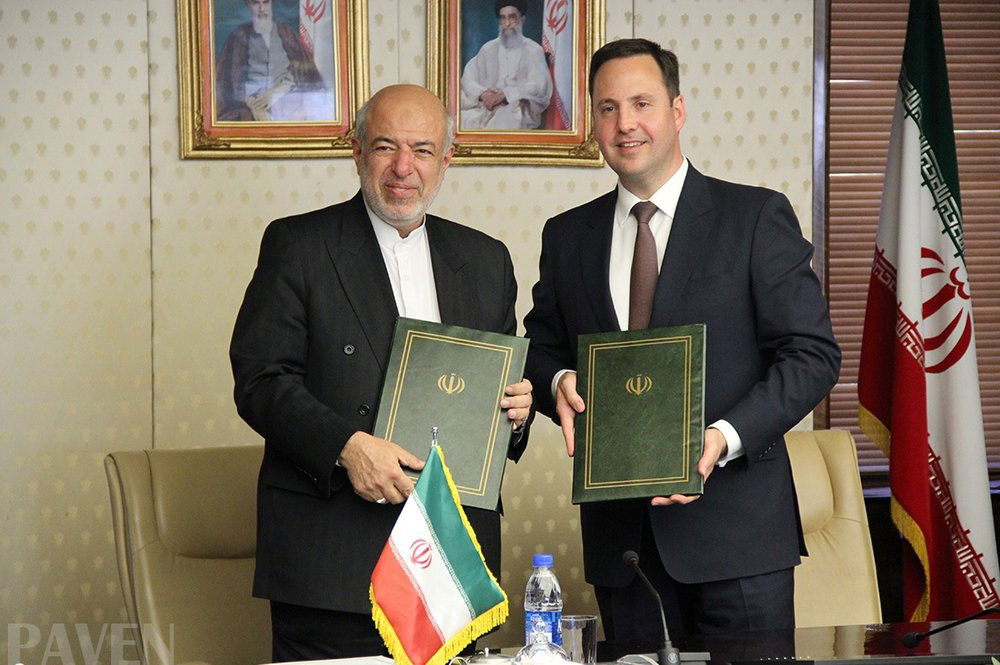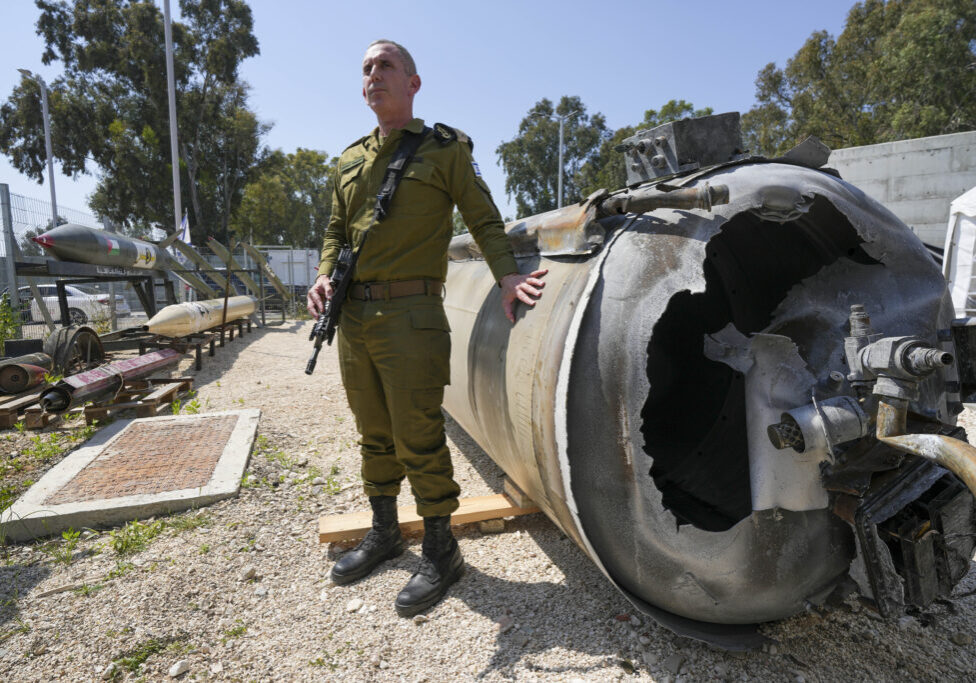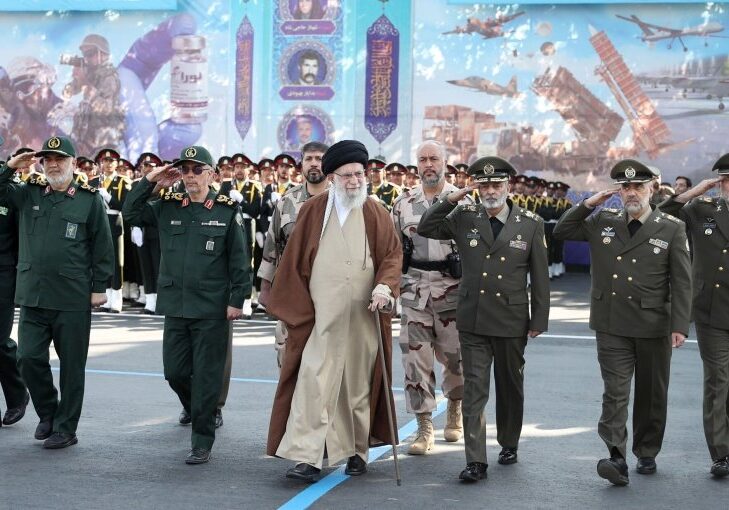Australia/Israel Review, Featured
How exposed are Australian businesses in Iran?
Jun 27, 2018 | Naomi Levin

In the weeks since US President Donald Trump announced the United States would withdraw from the flawed Iranian nuclear deal, many large multinational companies have cut ties with Iran.
The latest in a growing list of companies to ditch Iran include French oil giant Total SA; shipping company A.P. Moller-Maersk; car manufacturer PSA Group, owner of Peugeot and Citroen; aeroplane builder Boeing; Russian oil firm Lukoil; mega Indian conglomerate Reliance Industries; German electronics innovator Siemens Corporation; and oil industry supplier Dover Corp .
With Australia an ongoing supporter of the Iran nuclear deal – also known as the Joint Comprehensive Plan of Action on Iran (JCPOA) – there is no word yet on whether Australian companies operating in Iran will take similar steps.
The global giants that have so far announced their withdrawal from Iran have done so to avoid possibly breaching US sanctions. So just how exposed to Iran are Australian businesses?
Australian economic ties with Iran
The Australian Government was pleased to see Iran ‘open for business’ following the signing of the JCPOA in 2015.
Australian trade officials apparently continue to see Iran as a trade destination with huge potential – a country with 80 million people hungry for a higher standard of living. But progress has been slow.
In 2016, Australian Foreign Minister Julie Bishop told her Iranian counterpart Javad Zarif of “our enthusiasm for enhancing our trade and investment ties” with his country. That same year, Trade Minister Steven Ciobo opened an Austrade office in Teheran to operate alongside our embassy, which opened 50 years ago in 1968.
But what has eventuated?
Not all that much. According to the latest figures available from Australia’s Department of Foreign Affairs and Trade, trade with Iran – $156 million in 2016 – was worth less to Australia than our trade with Iceland, Brunei or Cambodia. The relationship slightly favoured Australia, with our “major” exports of vegetables, coal, wool and meat exceeding our imports of Iranian copper ores, fruits and nuts, rugs and construction materials.
ASX-LISTED COMPANIES OPERATING IN IRAN
A handful of ASX-listed companies have exposure to Iran.
WorleyParsons Ltd, a resources and energy company, was, in late 2017, awarded a contract to produce the conceptual study for a large gas project in the Persian Gulf. The project, Kangan LNG, is 100% owned by private Iranian energy company Mahtaab Group. It is unknown what the value of the contract is, but when the contract was announced, Grant Hulme, WorleyParsons Ltd’s Iran director, said, “WorleyParsons is proud of its long history in Iran, where we have been working for several years”. Worley-Parsons previously had an interest in the huge South Pars gas field, but announced in 2010 it would no longer accept contracts in Iran.
In March this year, Perth-based Global Energy Ventures Ltd (GEV) announced a heads of agreement had been signed with the National Iranian Gas Company for a 20-year sale and purchase of 6.85 million cubic metres of natural gas in Iran. In a statement, GEV chairman Maurice Brand said the company would install compression and berthing facilities in Iran’s Port of Chabahar, with the compressed gas to be shipped to India.
Western Australia-based Mineral Commodities Ltd established an office in Teheran for its wholly owned Iranian subsidiary Madan Rahjo Kanyab Company to explore and develop copper, gold, cobalt, nickel, zinc and potash-lithium projects in Iran. Mineral Commodities executive chairman Mark Caruso said in December, “despite global rhetoric and uncertainty surrounding the lifting of sanctions in Iran, the company has established a first-move advantage to enter into a world-class geological and mining jurisdiction.”
Servcorp Ltd, a Sydney-based company specialising in serviced office complexes, has an interest in the Park Building, apparently one of the most iconic commercial developments in downtown Teheran. It was opened in December 2017 by Australia’s Ambassador to Iran Ian Biggs and at the time, Iranian media reported Servcorp planned to open 10 more serviced office facilities in the country.
On the pharmaceuticals front, in addition to the deal announced in 2016 between Blackmores and Iranian Tasnim Pharmaceuticals to supply up to 25 products to the Iranian market, Australian Medical Developments International Ltd announced its intention to sell pain relief drug Penthrox in Iran in May this year. Announcing the deal, Medical Developments International Ltd CEO John Sharman said, “Iran is a wealthy, highly regulated and controlled healthcare market.”
AGRICULTURE
A report by Austrade into growing Australia’s agriculture exports to Iran almost immediately raised eyebrows after it trumpeted Iranian President Hassan Rouhani’s 2017 election victory as “good news” because “he will be able to distil and implement the progressive ideals demonstrated by his government to date.”
The report outlines the positive outlook for Australian beef and grain exports to Iran, but notes it is difficult to assess the true amount of Australian produce.
There are two reasons for this. First, agricultural export figures are often aggregated by region. So while it is easy to find figures for exports to the Middle East and North Africa region, it is harder to find those figures drilled down by country. Additionally, neighbouring Dubai is the key to Iran’s economy, with Teheran relying on Dubai as a financial, transport and trade hub. Austrade notes that more than 300 businesses are registered in Dubai, which may see many Australian products entering Iran across the border from the UAE, rather than directly.
Figures are available for some meat exports and show that in the financial year to date, Australia has shipped close to 10,000 kilograms of mutton and lamb to the Iran. While this may sound a lot, put in the context of some of our largest meat exports markets, such as Japan, China and the United States, it is minuscule.
To assist Australian farmers to get their products to Iran, Australia’s Department of Agriculture and Water Resources has negotiated improved market access for Australian wheat, oats, seeds, lentils, chickpeas, broad beans and timber.
EDUCATION
Education is Australia’s third largest export after iron ore and coal and Iran has been targeted as a potential destination for Australian education exports.
During Trade Minister Ciobo’s 2016 visit to Iran, he signed a memorandum of understanding with his local counterpart on water management. This led to a joint research project between the University of Melbourne and Iran’s Sharif University of Technology, facilitated by the Australian Government-supported Australian Water Partnership. This project aims to conserve Iran’s Lake Urmia, which was once the largest salt-water lake in the Middle East.
According to the University of Melbourne’s Professor Peter Scales, “the challenges faced in the Lake Urmia Basin match those encountered in water planning for the Murray-Darling Basin over the last 25 years.”
Also in 2017, private education provider the Australian Institute of Management Education and Training (AIM) partnered with Irsafam Institute in Iran to offer a joint master of business administration course. The course can be studied in Iran with Iranian teachers, but the qualification is issued by the Australian institution.
CONCLUSION
While Australian companies have not publicly disclosed intentions to back away from Iran, it is likely under consideration around many boardroom tables.
Australian Foreign Minister Julie Bishop has advised that Australian companies concerned about being exposed to reintroduced US sanctions against Iran should seek legal advice.
What is clear is that despite trade officials’ best efforts since the signing of the JCPOA to encourage Australian businesses to take advantage of the supposed opportunities the Persian nation presents, Australia’s trade relationship with Iran remains modest and limited.
Tags: Australasia, Australia, Iran






